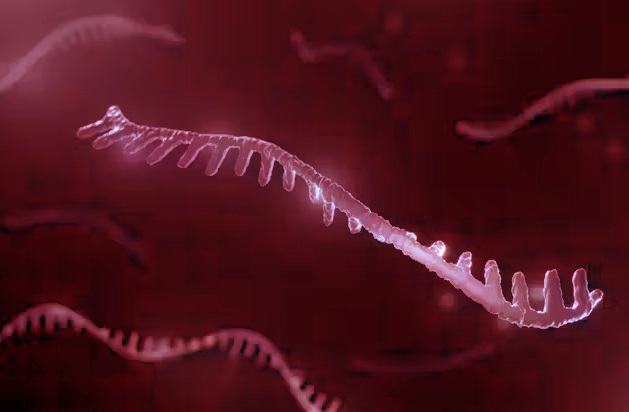Nikhil Prasad Fact checked by:Thailand Medical News Team Jan 10, 2025 1 year, 1 month, 1 week, 1 day, 7 hours, 54 minutes ago
Medical News: As the world battles the lingering effects of the COVID-19 pandemic, scientists are delving deeper into the mysteries of Long Covid, clinically referred to as Post-Acute Sequelae of SARS-CoV-2 Infection (PASC). Researchers from the University of Florence, Italy, and the National Institute for Infectious Diseases Lazzaro Spallanzani in Rome have made a significant contribution by examining the role of viral small RNA molecules in individuals with Long Covid. This
Medical News report explores their findings.
 Reduced Viral Small RNA Linked to Post COVID-19 Symptoms
Reduced Viral Small RNA Linked to Post COVID-19 Symptoms
PASC is a condition affecting millions worldwide, characterized by symptoms like fatigue, difficulty breathing, and cognitive issues lasting months after recovery. While some suggest that inflammation, immune dysregulation, or even persistent viral reservoirs might drive these symptoms, this study focused on small RNA molecules resembling microRNAs (miRNAs) produced by the virus.
The Study at a Glance
The team, led by Dr. Maria Alfreda Stincarelli and Dr. Simone Giannecchini, investigated whether SARS-CoV-2 creates miRNA-like small RNAs and their potential impact on PASC. These molecules, known to play roles in viral replication and immune modulation, were analyzed in cell cultures, nasopharyngeal swabs (NPS), and serum samples from COVID-19 patients.
Using advanced RNA assays, the researchers identified three small RNAs - svRNA 1, svRNA 2, and miR-07a - associated with the virus. These RNAs were studied in samples collected from 24 COVID-19 patients during the acute phase of infection and months later. Eleven patients reported lingering symptoms consistent with PASC.
Key Findings of the Study
-Small RNA and Acute Infection
The study found that all NPS samples from patients in the acute phase of COVID-19 contained the three viral small RNAs. This confirmed that SARS-CoV-2 actively produces these molecules during infection. Interestingly, there was no correlation between the presence of these RNAs and the development of PASC.
-Long-Term Presence in Serum
Serum samples presented a different picture. Initially, 42% of patients showed evidence of viral small RNA in their blood. Over time, this dropped to 33%. However, among PASC patients, the decline in these RNAs was more pronounced compared to those who recovered without long-term effects. This suggests potential disruptions in how these molecules are processed in PASC patients.
Insights into Immune Responses
The study also examined inflammatory markers, revealing that PASC patients exhibited altered cytokine levels during the acute infection. However, these changes did not appear directly linked to the viral small RNA levels. Instead, the findings hint at a complex interaction between viral persistence, immune response, and long-term symptoms.
Implications and Future Directions
This research underscores the intricate role of SARS-CoV-2 s
mall RNAs in the disease process. While they do not appear to directly cause PASC, their reduced presence in serum over time among PASC patients raises important questions. Could these molecules be markers of an unresolved immune response, or do they reflect deeper changes in viral-host interactions?
The researchers emphasize the need for larger studies to unravel these questions. Investigating additional SARS-CoV-2 small RNAs and their targets within human cells could provide more clarity. Moreover, exploring how these molecules influence immune and inflammatory pathways might lead to novel therapeutic strategies.
Conclusions
The study offers a fresh perspective on the role of viral small RNAs in COVID-19 and its aftermath. By showing that these molecules persist in bodily fluids and their dynamics differ in PASC patients, it opens new avenues for understanding the condition. While much remains to be uncovered, the findings highlight the importance of molecular-level research in addressing the long-term impacts of SARS-CoV-2.
The study findings were published in the peer-reviewed journal: Microorganisms
https://www.mdpi.com/2076-2607/13/1/126
For the latest COVID-19 News, keep on logging to Thailand
Medical News.
Read Also:
https://www.thailandmedical.news/news/latest-sars-cov-2-research-study-discovers-that-sars-cov-2-encoded-small-rnas-represses-host-expression-of-serinc5-for-viral-replication-
https://www.thailandmedical.news/news/breaking-covid-19-news-discovery-of-sars-cov-2-short-rnas-by-scientist-from-john-hopkins-is-a-big-gamechanger-in-terms-of-pathogenesis-and-long-covid
